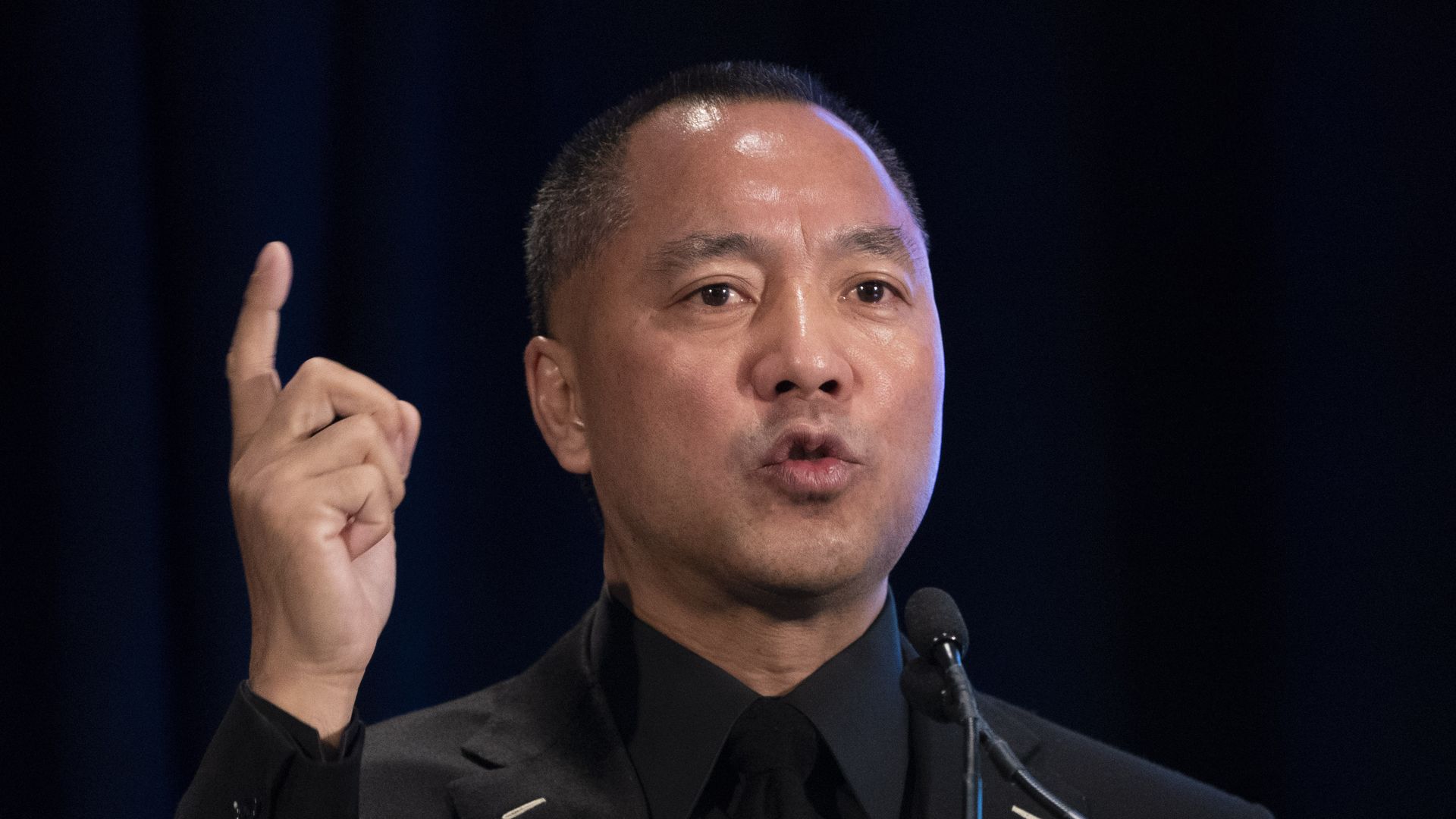Sep 13, 2021 - Economy
Media firms linked to Chinese billionaire settle SEC charges for $539 million
Add Axios as your preferred source to
see more of our stories on Google.

Guo Wengui holds a news conference on Nov. 20, 2018. Photo: Don Emmert/AFP via Getty Images

